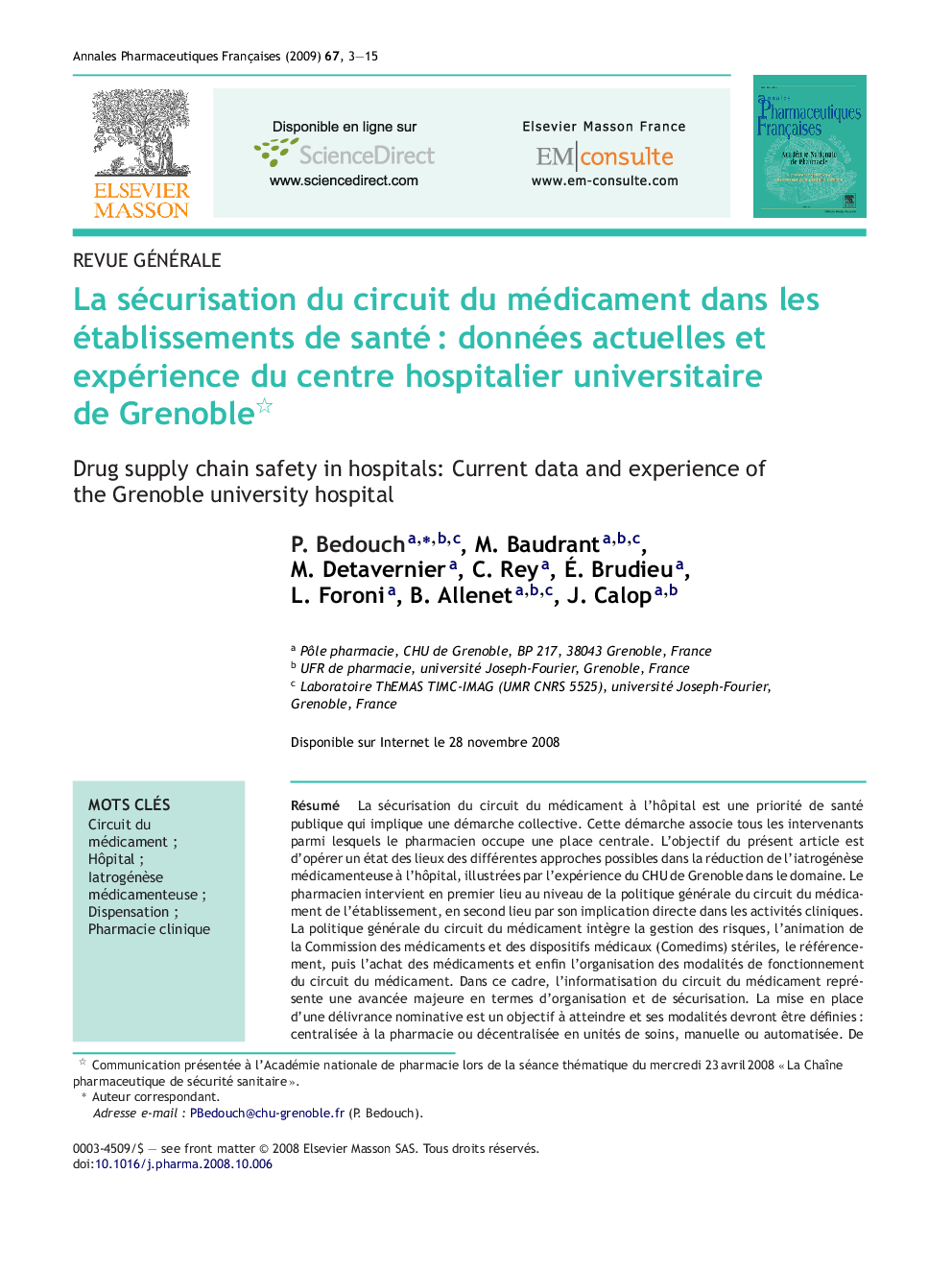| Article ID | Journal | Published Year | Pages | File Type |
|---|---|---|---|---|
| 2478415 | Annales Pharmaceutiques Françaises | 2009 | 13 Pages |
Abstract
Drug supply chain safety has become a priority for public health which implies a collective process. This process associates all health professionals including the pharmacist who plays a major role. The objective of this present paper is to describe the several approaches proven effective in the reduction of drug-related problem in hospital, illustrated by the Grenoble University Hospital experience. The pharmacist gets involved first in the general strategy of hospital drug supply chain, second by his direct implication in clinical activities. The general strategy of drug supply chain combines risk management, coordination of the Pharmacy and Therapeutics Committee, selection and purchase of drugs and organisation of drug supply chain. Computer management of drug supply chain is a major evolution. Nominative drug delivering has to be a prior objective and its implementation modalities have to be defined: centralized or decentralized in wards, manual or automated. Also, new technologies allow the automation of overall drug distribution from central pharmacy and the implementation of automated drug dispensing systems into wards. The development of centralised drug preparation allows a safe compounding of high risk drugs, like cytotoxic drugs. The pharmacist should develop his clinical activities with patients and other health care professionals in order to optimise clinical decisions (medication review, drug order analysis) and patients follow-up (therapeutic monitoring, patient education, discharge consultation).
Keywords
Related Topics
Health Sciences
Pharmacology, Toxicology and Pharmaceutical Science
Drug Discovery
Authors
P. Bedouch, M. Baudrant, M. Detavernier, C. Rey, Ã. Brudieu, L. Foroni, B. Allenet, J. Calop,
